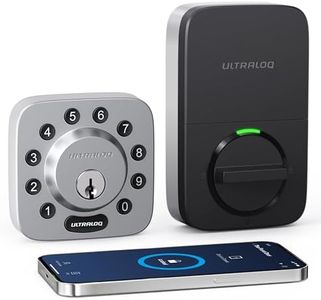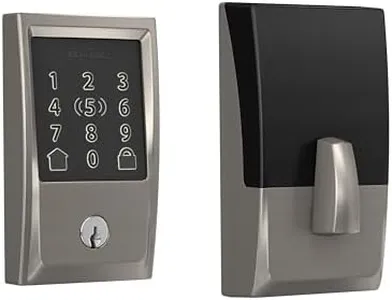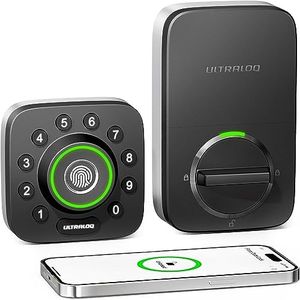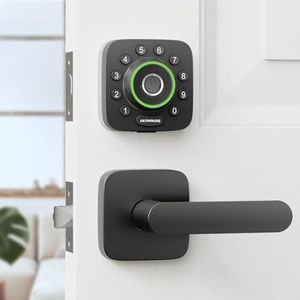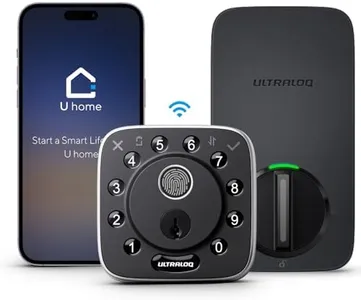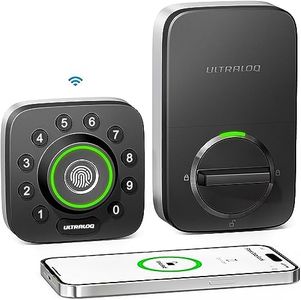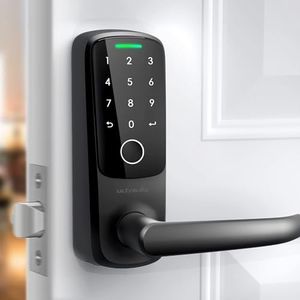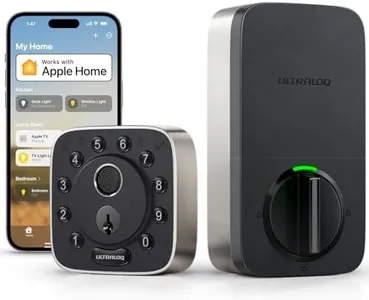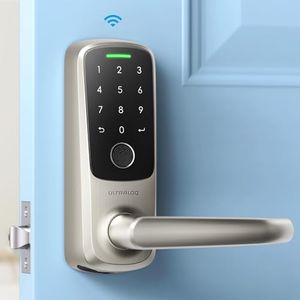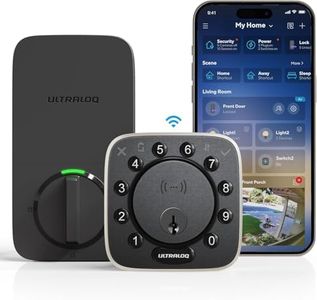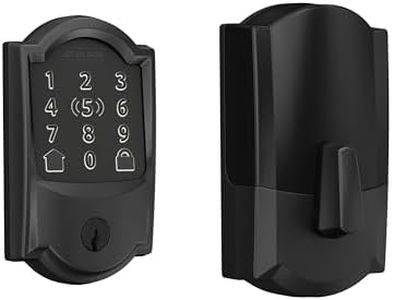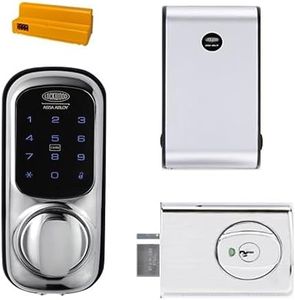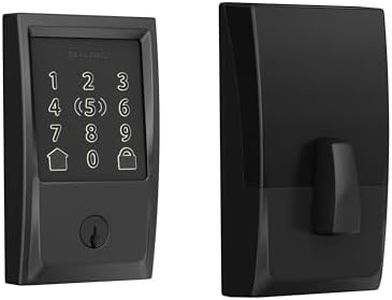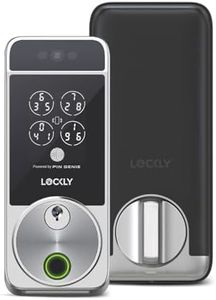We Use CookiesWe use cookies to enhance the security, performance,
functionality and for analytical and promotional activities. By continuing to browse this site you
are agreeing to our privacy policy
10 Best Smart Locks
From leading brands and best sellers available on the web.By clicking on a link to a third party's website, log data is shared with that third party.
Buying Guide for the Best Smart Locks
When choosing a smart lock, it's important to think about your lifestyle, how tech-comfortable you are, and the specific needs of your home. A smart lock can make your life easier, giving you keyless entry, the ability to share access codes, and sometimes even integrate with other smart home products. Before you buy, make sure the features suit your daily habits and the lock is compatible with your door. Pay attention to user-friendliness, security, and how you want to interact with your lock (for example, by phone, key code, or even voice assistant).Unlock MethodThe unlock method refers to how you open the lock without a traditional key. It can include options like entering a PIN code, using a smartphone app, fingerprint scanning, or even voice commands. Some locks offer multiple unlock methods for flexibility. Consider how you and your household are most comfortable accessing the door. For example, if you often forget your phone, a PIN code might be more reliable. If you like the convenience of not carrying anything, a fingerprint sensor could be best. Think about the age and tech-ability of your household members—choose a method everyone will find easy to use.
ConnectivityConnectivity refers to how the smart lock communicates with your phone or other devices. Common options are Bluetooth, Wi-Fi, and sometimes Z-Wave. Bluetooth locks are simple and don’t need internet, but you can only control them when nearby. Wi-Fi connectivity allows you to control the lock remotely and get real-time alerts, but it can use more battery. Z-Wave is for use with a broader smart home system and needs a hub. If you want remote access or integration with smart home routines, consider Wi-Fi or Z-Wave. If you just want basic control without remote features, Bluetooth can be enough.
CompatibilityCompatibility means whether the lock will work with your existing door, deadbolt, and home setup. Some smart locks replace the entire locking system, while others fit over your current deadbolt. Before purchasing, check your door’s thickness, the deadbolt type, and the direction it opens. Some locks are better for renters since they don’t require major modifications. Make sure the lock fits your door and does not violate any building or landlord restrictions.
Power Source and Battery LifeMost smart locks are powered by batteries, and you’ll need to know how long they last and how you’re notified when they’re low. Battery life can range anywhere from a few months to over a year, depending on features like Wi-Fi usage and how often you unlock the door. Consider how willing you are to change batteries and if the lock provides alerts (like a phone notification or blinking light) before the batteries die. If you use the lock frequently or need remote access, expect to change batteries more often.
Security FeaturesSecurity features include things like encryption, alarm systems, auto-lock functions, and resistance to physical tampering. Good security prevents unauthorized access, both digitally and physically. Some locks have built-in alarms if someone tries to force the door, and others offer encrypted communication to prevent hacking. If your top priority is safety, look for industry certifications and extra features like activity logs, two-factor authentication, or an auto-lock timer. Think about how much you value these extra layers of protection for your home.
